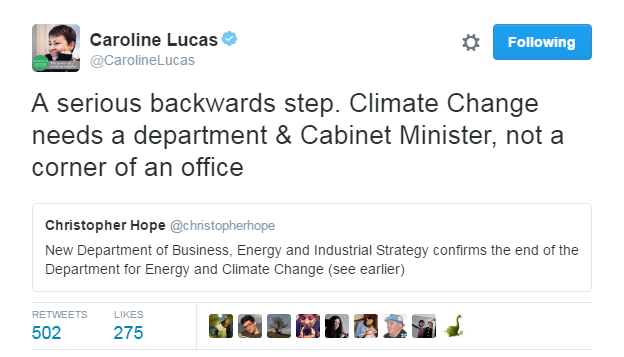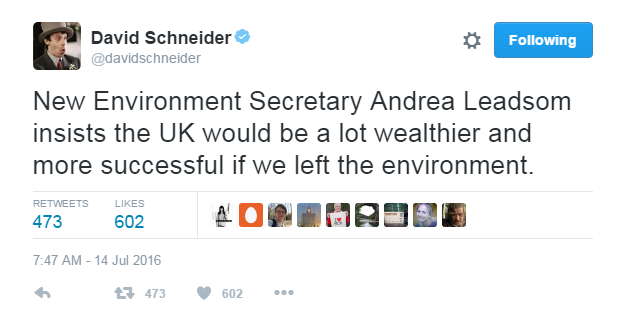
Climate change has disappeared! Not from the atmosphere sadly. But from inclusion in the title of a UK government department. The new PM, Theresa May, has merged the old Department of Energy and Climate Change with elements of the Department for Business. The result: a new Department for Business, Energy and Industrial Strategy.
So what does this sudden ommission mean for the green agenda? Will carbon reduction now be central to business investment – so accepted that it no longer needs spelling out? Or rather consigned to an awkward afterthought?
The first reactions to the news of DECC’s dismantling were distinctly frosty:

But the announcement that Greg Clark, MP for Tunbridge Wells, would be taking the helm of the new department has helped calm some of the initial fear. Clark has been praised by the green sector, both as Secretary of State for Communities and Local Government, and during his time as shadow environment secretary.

He is particularly feted for arguing that action on climate change can be the path to a stronger economy, rather than an obstacle. “The choice between aggressive and ambitious action on carbon reduction and a successful, powerful economy is, in fact, not a choice at all – they are one and the same,” he said of Labour’s 2010 decision to raise emmissions targets
And his statement this afternoon said nothing to suggest that he has changed his position:
“I am thrilled to have been appointed to lead this new department charged with delivering a comprehensive industrial strategy, leading Government’s relationship with business, furthering our world-class science base, delivering affordable, clean energy and tackling climate change.”
Though many will be hoping that the order of his sentence does not reflect his hierarchy of care:

Clark will have to act swiftly to reassure environmentalists and investors alike. A quick ratification of the Paris Agreement would be an excellent start here. As would boosting renewable energy and making good on his 2010 ambitions to support research into carbon capture storage and the roll out of smart grids.
Such signals will be all the more urgent in light of the appointments of Andrea Leadsom to DEFRA and Boris Johnson as Foreign Secretary – both figures renown for their links to the climate-sceptic side of the Conservative party.
Clark is a smart appointment. But with climate change no longer enshrined in a department’s purpose, the green lobby is left pinning its hopes on a single man.







